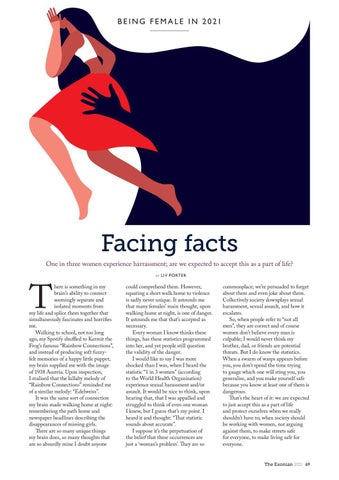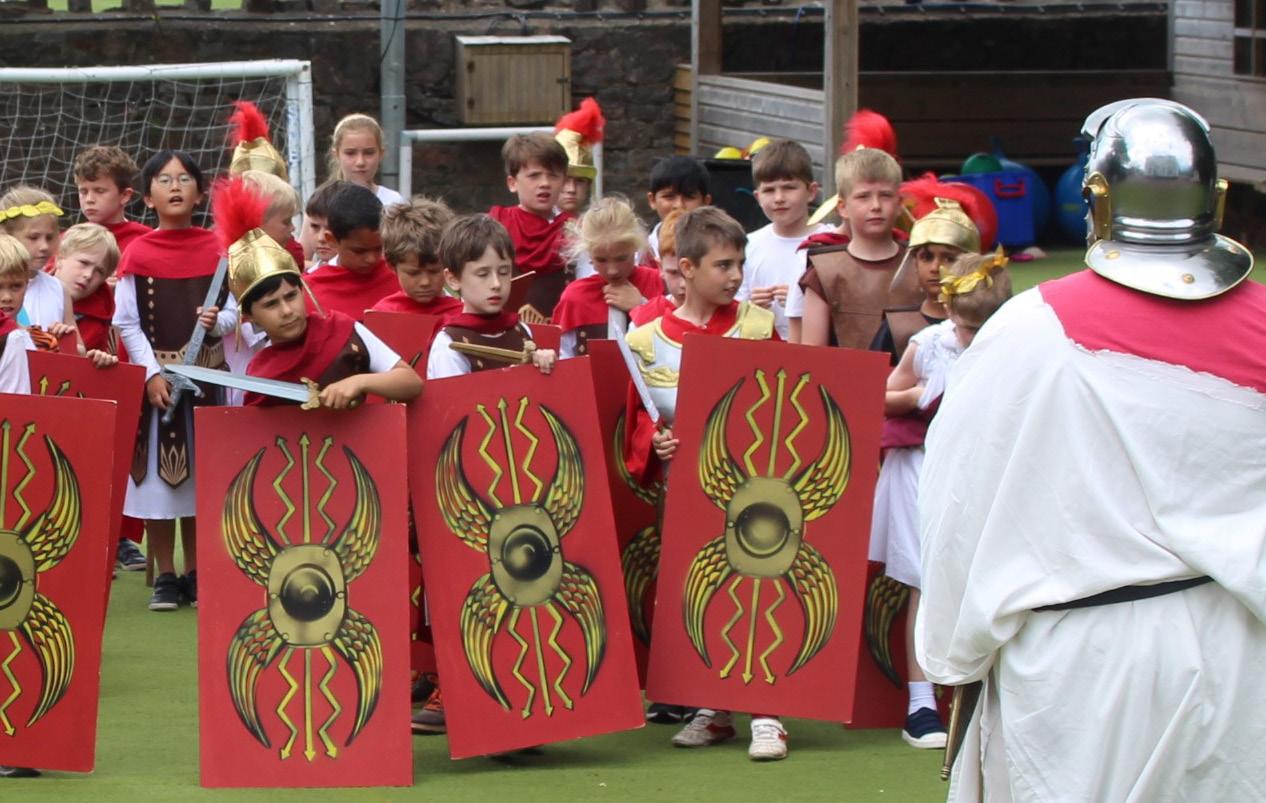B E I N G F E M A L E I N 2 0 21
Facing facts One in three women experience harrassment; are we expected to accept this as a part of life?
T
here is something in my brain’s ability to connect seemingly separate and isolated moments from my life and splice them together that simultaneously fascinates and horrifies me. Walking to school, not too long ago, my Spotify shuffled to Kermit the Frog’s famous “Rainbow Connections”, and instead of producing soft fuzzyfelt memories of a happy little puppet, my brain supplied me with the image of 1938 Austria. Upon inspection, I realised that the lullaby melody of “Rainbow Connections” reminded me of a similar melody: “Edelweiss”. It was the same sort of connection my brain made walking home at night: remembering the path home and newspaper headlines describing the disappearances of missing girls. There are so many unique things my brain does, so many thoughts that are so absurdly mine I doubt anyone
by
LIV PORTER
could comprehend them. However, equating a short walk home to violence is sadly never unique. It astounds me that many females’ main thought, upon walking home at night, is one of danger. It astounds me that that’s accepted as necessary. Every woman I know thinks these things, has these statistics programmed into her, and yet people still question the validity of the danger. I would like to say I was more shocked than I was, when I heard the statistic “1 in 3 women” (according to the World Health Organisation) experience sexual harassment and/or assault. It would be nice to think, upon hearing that, that I was appalled and struggled to think of even one woman I knew, but I guess that’s my point. I heard it and thought: “That statistic sounds about accurate”. I suppose it’s the perpetuation of the belief that these occurrences are just a ‘woman’s problem’. They are so
commonplace; we’re persuaded to forget about them and even joke about them. Collectively society downplays sexual harassment, sexual assault, and how it escalates. So, when people refer to “not all men”, they are correct and of course women don’t believe every man is culpable; I would never think my brother, dad, or friends are potential threats. But I do know the statistics. When a swarm of wasps appears before you, you don’t spend the time trying to gauge which one will sting you, you generalise, and you make yourself safe because you know at least one of them is dangerous. That’s the heart of it: we are expected to just accept this as a part of life and protect ourselves when we really shouldn’t have to; when society should be working with women, not arguing against them, to make streets safe for everyone, to make living safe for everyone. The Exonian 2021 69
















































